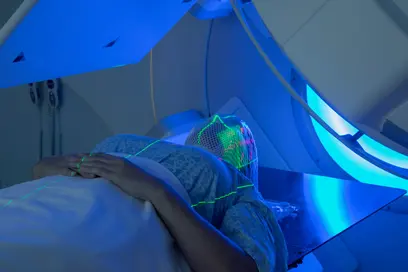Medulloblastoma is the most common malignant brain tumor in children and also the one with the poorest prognosis: Approximately every third child with medulloblastoma succumbs to it, while another third is left with more or less severe health complications. However, the course of this disease can differ considerably in each individual patient. What clinicians need to know above all is the extent to which the tumor has already spread within the brain. However, this is exactly where medicine often reaches its limits. “We’ve quite often seen that a tumor recurs in a different area after surgery – even though there was initially no indication of a spread of cancer cells in the brain," says Professor Dr. Stefan Pfister, a pediatrician and cancer researcher. “We therefore need a better method to assess the spread of a tumor and hence the course that the disease will take."
To date, detection of cancer cells in the cerebrospinal fluid has served as an indication of tumor spread. Pfister now aims to search instead for tumor genetic material in the fluid. This method would discover even tiny amounts of disseminated cancer cells and would also allow immediate genetic analysis of the tumor. At a later stage in the project, the researchers will also investigate whether cerebrospinal fluid examination can also be used for assessing treatment response.
The principle of this method is already being successfully used in childhood leukemias, where bone marrow samples are taken from patients and examined for traces of tumor DNA. This makes it possible to detect even the smallest amounts of cancer cells, which are sometimes left even after treatment. In such cases, treatment is continued until no more cancer cells are detected. However, it is not yet possible to spot such minimal residual disease in brain cancers. Pfister’s research project also aims to ascertain if cerebrospinal fluid examination may be used to make this possible in the future.
The James S. McDonnell Foundation will fund the project with 450,000 US dollars. The foundation aims to contribute to improving the quality of life by supporting research. One of its three funding areas is the study of brain tumors.
A picture of Stefan Pfister is available on the Internet at:
Portrait_Pfister.jpg



